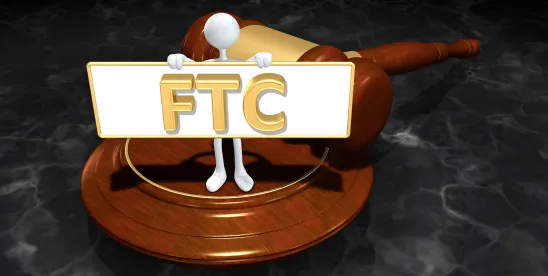On March 27, the FTC announced that a fintech company offering cash advances through a mobile app has agreed to pay $17 million to resolve allegations that it violated the FTC Act and the Restore Online Shoppers’ Confidence Act (ROSCA). The FTC alleged that the company misrepresented the availability and cost of its services and failed to obtain consumers’ express informed consent before charging recurring subscription fees.
According to the FTC’s complaint, the company marketed its services as free and interest-free, but required users to enroll in a paid subscription plan, often without their knowledge. Consumers allegedly encountered barriers to cancellation, including disabled links and unclear steps, which resulted in unauthorized recurring charges.
Specifically, the lawsuit outlines several alleged deceptive practices, including:
- Misleading “no-fee” marketing. The company advertised cash advances as fee-free, but consumers were required to enroll in a paid subscription to access the service.
- Delayed access to funds. Although the company promoted instant fund transfers, consumers allegedly had to pay an additional expedited delivery fee to receive funds quickly.
- Recurring charges without consent. The company allegedly failed to obtain consumers’ express informed consent before initiating subscription charges.
- Insufficient disclosure of trial terms. Consumers were automatically enrolled in a paid subscription following a free trial, without clear and conspicuous disclosures.
- Obstructive cancellation process. Some users were allegedly unable to cancel within the app, and others encountered unnecessary and cumbersome hurdles when attempting to prevent further charges.
- Retention of charges after cancellation. The FTC alleged that the company kept charging users even after they attempted to cancel their subscriptions.
Under the stipulated order, the company must pay $10 million in consumer redress and a $7 million civil penalty. The company is also expressly barred from misrepresenting product features, charging consumers without affirmative express consent, and using designs that impede cancellation.
Putting It Into Practice: While the CFPB and state regulators continue to recalibrate their supervisory priorities, the FTC has remained consistent in its focus on unfair or deceptive acts and practices. This enforcement underscores the FTC’s longstanding commitment to stamping out deceptive marketing practices (previously discussed here, here, and here). While the CFPB has taken a step back, the FTC has continued its aggressive enforcement posture. Companies should review this enforcement action with an eye towards their own marketing practices.




 />i
/>i
